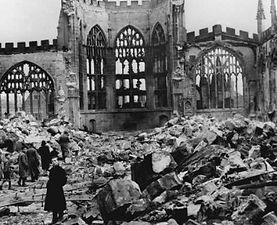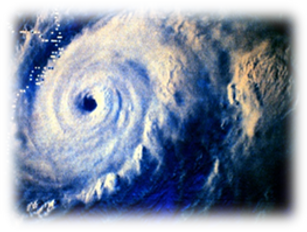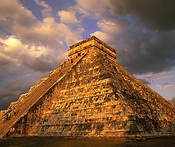Year 6
Welcome to the Year 6 Class Page!
Welcome to our class page! I am excited to work with your children this year and to be part of their learning journey. Our classroom is a place where curiosity is encouraged and every child's strengths are nurtured.
Whilst every year is important in a child’s development, Year 6 is truly special as it marks the culmination of all their hard work and achievements throughout their primary school journey. This year not only celebrates their successes but also plays a crucial role in helping them grow in both maturity and independence, preparing them for the exciting transition to secondary school.
I am excited to embark on this journey with the children and look forward to celebrating a year full of learning, growth, and success for each one of them.
Thank you for your support. I look forward to a wonderful year together.
Warm regards,
Mrs Snowden
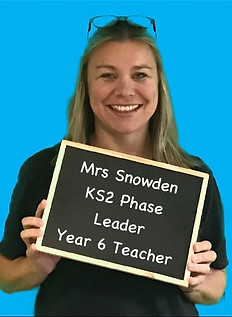
Year 6 Team



Curriculum Overview
English
Our Year 6 English curriculum integrates the skills of reading, writing, spelling, and handwriting with our thematic learning units: Behind the Bombs, Natural Disasters, and The Curse of the Maya. Through the class books Letters from the Lighthouse, Kensuke’s Kingdom, and The Explorer, students will experience rich, engaging literacy lessons that deepen their understanding of both language and the world around them.
We prepare students for secondary school by fostering strong literacy skills, critical thinking, and a passion for reading and writing.
Reading
1. Engaging with Texts and Themes
Throughout the year, students will read a variety of fiction and non-fiction texts linked to our themes. They will analyse characters, settings, and plots, while making connections between the texts and real-world events, historical contexts, and natural phenomena.
Autumn: Letters from the Lighthouse (linked to WWII and evacuation) explores life during the Blitz, connecting to the theme Behind the Bombs.
Spring: Kensuke’s Kingdom highlights survival in the face of natural disasters, connecting to the Natural Disasters theme.
Summer: Studies of the Maya civilization are tied to The Curse of the Maya, focusing on ancient history and jungle exploration.
2. Reading for Pleasure
Encouraging independent reading is central to Year 6. Students will be guided to choose books that deepen their engagement with the class themes and develop a lifelong love for reading.
Writing
1. Writing for Different Purposes and Audiences
The children will engage in a variety of writing activities inspired by the thematic units and class books. They will write from different perspectives, craft narratives, and produce non-fiction pieces that reflect their learning.
2. Planning, Drafting, and Editing
The children will be guided through the process of planning, drafting, editing, and refining their writing, improving accuracy and creativity.
Spelling
1. Spelling Rules and Patterns
Spelling lessons will focus on mastering complex rules and applying them in writing, with a special emphasis on vocabulary related to our themes.
2. Application of Spelling in Writing
Students will apply their spelling knowledge in daily writing activities, including thematic essays, reports, and creative writing tasks.
Key Focus:
-
Dictation: Practising spelling in context through dictation exercises.
-
Integrated Learning: Using theme-based vocabulary in all written work.
Handwriting
Students will continue to refine their handwriting, ensuring consistency in letter formation, spacing, and speed. They will be encouraged to produce neatly presented work, especially in longer writing tasks linked to thematic projects.
Key Focus:
-
Cursive Writing: Maintaining a joined and legible handwriting style.
-
Speed and Neatness: Writing clearly and quickly without sacrificing presentation.
-
Presentation: Ensuring that all written work, especially final drafts of thematic projects, is presented to a high standard.
Maths
Our Year 6 Maths overview is designed in line with the National Centre for Excellence in the Teaching of Mathematics (NCETM) guidance. The focus is on developing mathematical fluency, reasoning, and problem-solving skills that build a strong foundation for secondary education. Below is an outline of the key areas your child will cover throughout the year.
1. Number and Place Value: Children deepen their understanding of the number system, working with numbers up to 10 million. They strengthen their skills in comparing, rounding, and understanding negative numbers.
2. Addition, Subtraction, Multiplication, and Division: In Year 6, students refine their ability to perform all four operations with increasingly complex numbers. This includes solving multi-step problems and working with large numbers and decimals.
3. Fractions, Decimals, and Percentages: This unit focuses on consolidating students’ understanding of fractions, decimals, and percentages, ensuring they can manipulate and convert between these forms with confidence.
4. Ratio and Proportion: Students explore the relationship between quantities and how to compare them using ratios. They learn to solve problems involving scale, percentages, and proportional reasoning.
5. Algebra: This topic introduces basic algebra, enabling students to work with variables, write expressions, and solve simple equations.
6. Measurement: Measurement in Year 6 includes working with units of measure, converting between different units, and solving real-life problems involving area, volume, and time.
7. Geometry: Properties of Shapes: Students investigate 2D and 3D shapes, learning about angles, symmetry, and coordinates. They also develop skills in drawing, measuring, and interpreting geometrical diagrams.
8. Geometry: Position and Direction: This unit focuses on coordinates, translations, reflections, and symmetry. Students apply these skills to solve practical and real-life problems.
9. Statistics: Students extend their knowledge of data representation and interpretation. They learn to collect, organise, and analyse data using a variety of charts and graphs.
10. Mathematical Reasoning and Problem Solving: Throughout all topics, students are encouraged to think critically, reason logically, and approach problems methodically. They engage in mathematical discussions, explain their thinking, and develop strategies for tackling complex problems.
Science
Through our science curriculum, the children build on their foundational knowledge, exploring a range of topics that develop their understanding of scientific principles and the world around them. We will also celebrate our STEM week in November where the children experience all that STEM careers have to offer. Our lessons prepare students for the transition to secondary school by embedding critical thinking, problem-solving, and practical investigation skills. These core topics ensure students leave primary education with a solid understanding of essential scientific concepts, ready to expand their knowledge further.
1. Living Things and Their Habitats: Students explore how living organisms, including plants and animals, are classified. They delve into the characteristics of different groups such as mammals, reptiles, amphibians, birds, and microorganisms.
2. Evolution and Inheritance: This topic introduces the concept of evolution, teaching students how living things have adapted over millions of years. They also learn about inheritance and the passing of traits from one generation to the next.
3. Animals Including Humans: In this unit, students investigate the human body, focusing on the circulatory system. They study the role of the heart, blood vessels, and the importance of a healthy lifestyle.
4. Electricity: This section covers the properties and practical uses of electricity. Students construct circuits, learn about the function of components, and investigate how voltage affects circuit operation.
5. Light: Pupils explore the properties of light, how it travels, and how we see objects. They also investigate shadows, reflection, and refraction.
6. Working Scientifically: Throughout all the topics, students engage in hands-on investigations to develop their scientific enquiry skills. They learn how to plan experiments, collect data, and draw conclusions based on evidence.
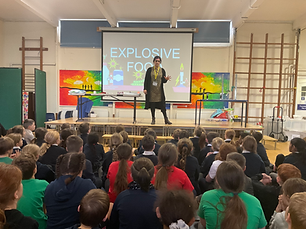
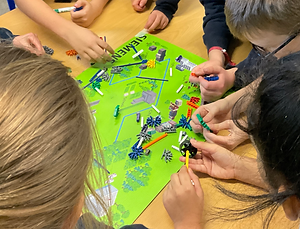
RE
This year, students explore a range of religious concepts, beliefs, and worldviews, engaging in thought-provoking discussions about faith, spirituality, and ethical living. Through enquiry-based learning, they examine the role of religion in individual lives and society, with a focus on Christianity and Buddhism. This curriculum is designed to foster curiosity, respect for others’ beliefs, and a thoughtful approach to life’s big questions.
1. Creation and Science: Conflicting or Complimentary? This topic encourages students to explore the relationship between religious beliefs about creation and scientific explanations like the Big Bang and evolution. Students reflect on whether these perspectives are in conflict or can be viewed as complementary.
2. Incarnation: In this unit, students study the Christian belief in the Incarnation – that Jesus is God made human. They explore the significance of Jesus’ birth and how this concept influences Christian practices and beliefs today.
3. Was Jesus the Messiah? Students examine the idea of Jesus as the Messiah, a saviour figure promised in the Old Testament. They explore biblical prophecies and reflect on how Jesus fulfilled, or did not fulfil, the expectations of a Messiah.
4. Enquiry-Based Unit: This unit allows students to independently investigate big questions about life, morality, and belief. They are encouraged to think critically and reflect on personal views, religious teachings, and philosophical ideas.
5. Buddhism and Other World Views: What Should We Do Without? In this unit, students explore the Buddhist concept of detachment and simplicity, reflecting on how material possessions and desires impact life. They also compare this with other worldviews that focus on ethical living and selflessness.
6. Buddhism: How Did Buddha Teach His Followers to Find Enlightenment? This unit focuses on the life of Siddhartha Gautama (the Buddha) and how his teachings guide followers toward enlightenment. Students explore the Eight-fold Path and how it serves as a practical guide for living.
7. Buddhism: How Does the Triple Refuge Help Buddhists in Their Journey Through Life? This unit explores the Triple Refuge or the "Three Jewels" of Buddhism: the Buddha, the Dharma (teachings), and the Sangha (community). Students learn how these serve as a guide for Buddhists in their spiritual journey.
8. Kingdom of God: What Kind of King Is Jesus? In this unit, students explore the concept of the Kingdom of God and what it means for Christians to view Jesus as a king. They reflect on how Jesus’ leadership contrasts with earthly rulers and what it means to live according to his teachings.


History and Geography
Year 6 History and Geography combine the study of the past with a deep understanding of the physical world, preparing students to think critically about how historical events and geographical processes continue to shape our present and future. Through our trip to Coventry Cathedral, we will investigate the impact WWII had on our local area and our residential to RedRidge, allows the children to investigate the different landscapes in the Welsh boarders.
History Topics
1. What Was Life Like for Children During WWII? Students learn about the impact of World War II on children in Britain. They explore evacuation, rationing, and daily life during wartime, understanding the challenges children faced.
2. What Happened to Our Local Area During WWII? This topic explores the local history of the student's area during the Second World War. They investigate how war efforts, bombings, or military operations affected their community.
3. What Happened to the Maya Civilization? Students explore the rise and fall of the ancient Maya civilization in Central America. They learn about their achievements in architecture, mathematics, and astronomy, and investigate theories on the decline of this great civilization.
4. How Was Life Different in the Maya Civilization Compared to Other Civilizations? Students compare Maya civilization with other ancient societies, such as the Egyptians, Greeks, or Romans, to understand similarities and differences in culture, technology, and governance.
Geography Topics
1. Describe the Physical and Human Features of North America. This topic helps students explore the diverse landscapes and human settlements across North America. They study mountains, rivers, cities, and natural resources to understand how physical geography shapes human activities.
2. How Are Volcanoes Formed? Students learn about tectonic plate movements and how these create volcanoes. They investigate different types of volcanoes and where they are found around the world.
3. Explain the Climate Zones and Extreme Weather Patterns. This topic covers the Earth's different climate zones, including polar, temperate, and tropical regions. Students also learn about extreme weather phenomena such as hurricanes, tornadoes, and droughts.
